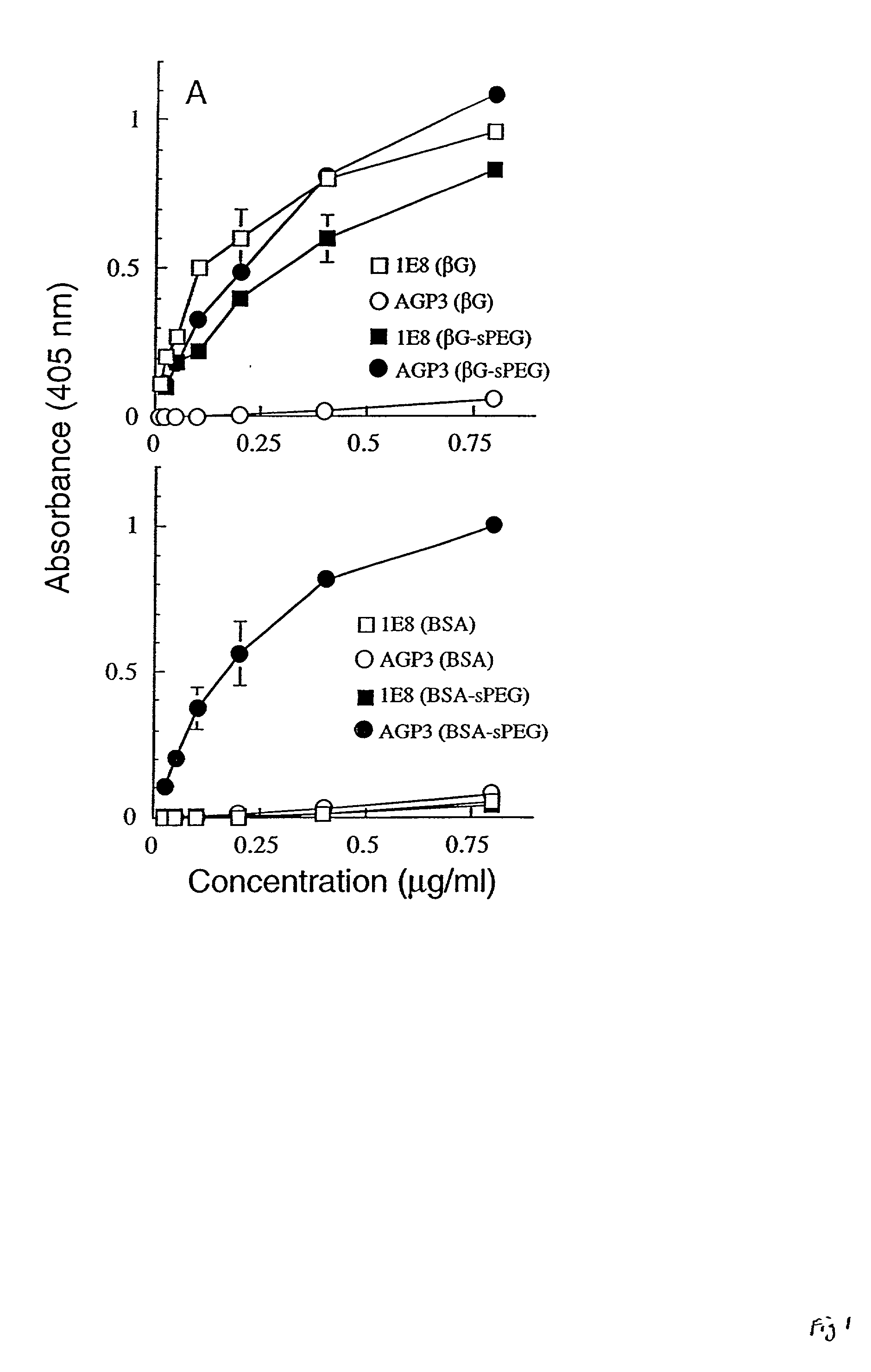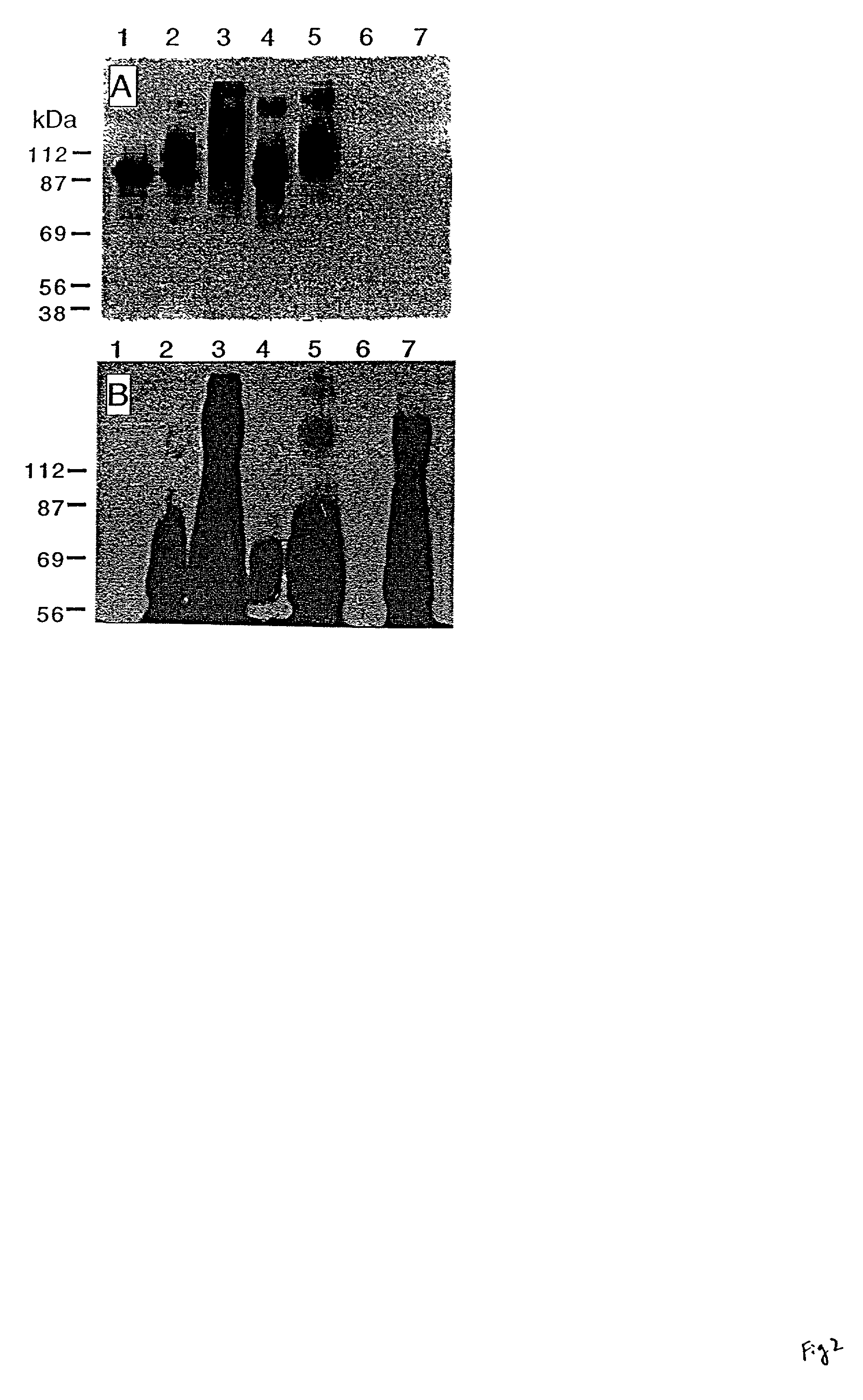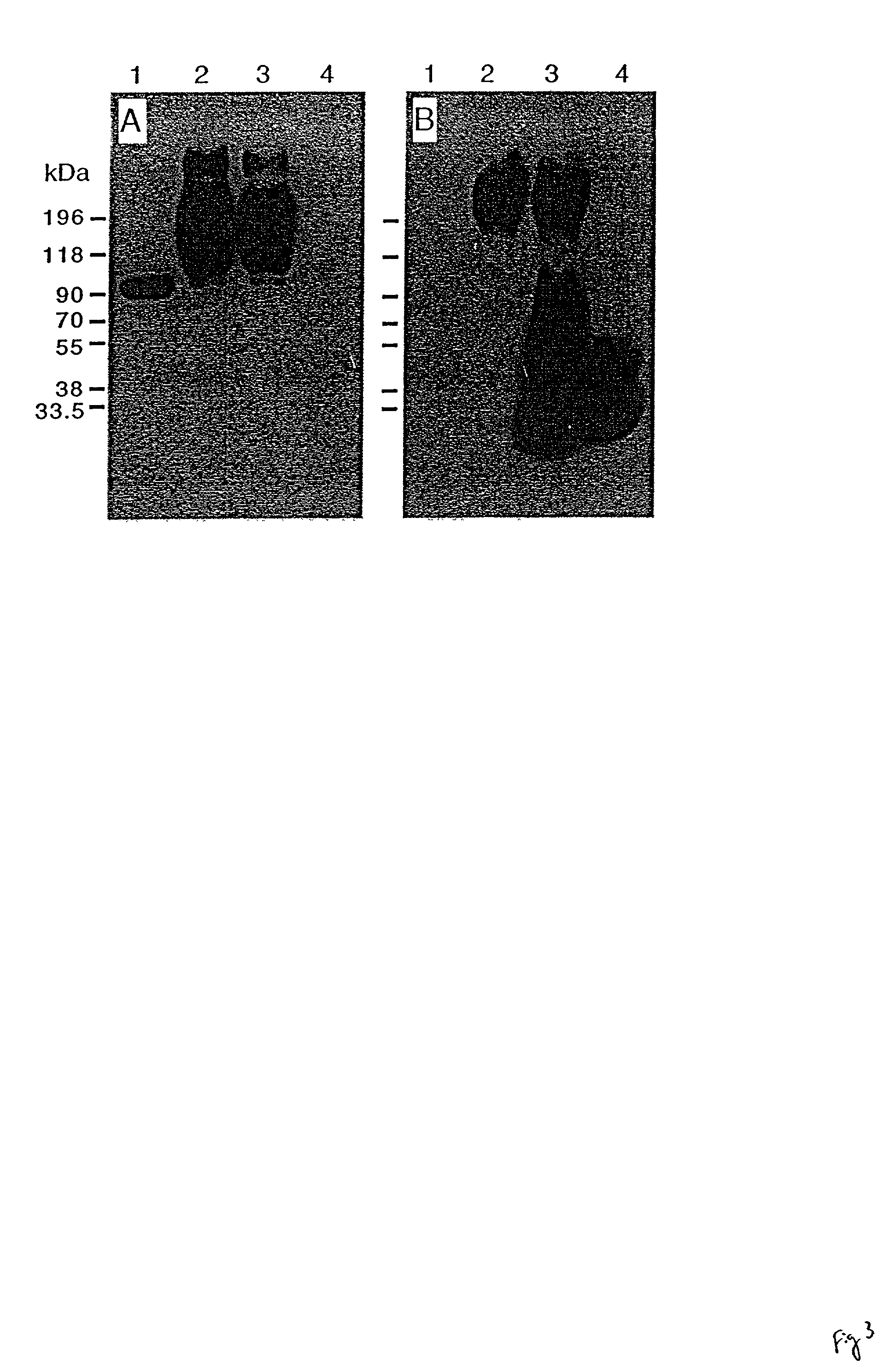Monoclonal antibody for analysis and clearance of polyethylene glycol and polyethylene glycol-modified molecules
a polyethylene glycol and modified technology, applied in the field of new anti-polyethylene glycol (peg), can solve the problems of difficult detection of peg-modified molecules, and inability to use simple methods to measure intact peg-protein conjugates,
- Summary
- Abstract
- Description
- Claims
- Application Information
AI Technical Summary
Benefits of technology
Problems solved by technology
Method used
Image
Examples
Embodiment Construction
[0043] Abbreviations:
[0044] 1E8-xG, mAb 1E8 containing x galactose moieties per antibody.
[0045] 5A8-PEG, conjugate formed between mAb 5A8 and .beta.G-sPEG.
[0046] AGP3-biotin, mAb AGP3 derivatized with biotin.
[0047] AGP3-xG, monoclonal antibody AGP3 containing x galactose groups per antibody.
[0048] B72.3-.beta.-PEG, conjugate of the F(ab').sub.2 fragment of mAb B72.3 with .beta.G-sPEG.
[0049] .beta.G, Eschericia coli .beta.-glucuronidase.
[0050] .beta.G-PEG-.beta.G, .beta.-glucuronidase crosslinked with poly(ethylene glycol)-di-succinimidyl succinamide.
[0051] .beta.G-pPEG, .beta.-glucuronidase modified with pPEG.
[0052] .beta.G-sPEG, .beta.-glucuronidase modified with sPEG.
[0053] .beta.G-tPEG, .beta.-glucuronidase modified with tPEG.
[0054] BMAMG, glucuronide prodrug of pHAM.
[0055] BSA, bovine serum albumin.
[0056] BSA-sPEG, bovine serum albumin modified with sPEG.
[0057] ELISA, enzyme-linked immunosorbent assay.
[0058] H25-.beta.G-PEG, conjugate of the F(ab').sub.2 fragment of mAb H25B10 w...
PUM
| Property | Measurement | Unit |
|---|---|---|
| pH | aaaaa | aaaaa |
| concentration | aaaaa | aaaaa |
| concentration | aaaaa | aaaaa |
Abstract
Description
Claims
Application Information
 Login to View More
Login to View More - R&D
- Intellectual Property
- Life Sciences
- Materials
- Tech Scout
- Unparalleled Data Quality
- Higher Quality Content
- 60% Fewer Hallucinations
Browse by: Latest US Patents, China's latest patents, Technical Efficacy Thesaurus, Application Domain, Technology Topic, Popular Technical Reports.
© 2025 PatSnap. All rights reserved.Legal|Privacy policy|Modern Slavery Act Transparency Statement|Sitemap|About US| Contact US: help@patsnap.com



